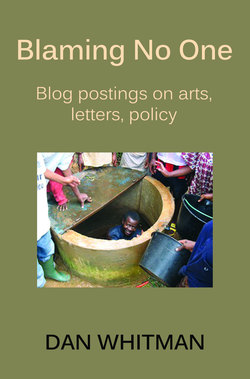Читать книгу Blaming No One - Dan Inc. Whitman - Страница 5
На сайте Литреса книга снята с продажи.
Not the Gbagbo I Knew April 6, 2011
ОглавлениеReprinted from the Examiner
By the time you read this, Cote d’Ivoire’s president and strong-arm dictator Laurent Gbagbo will be out or in, alive, dead, or in flight. He’s not about to return as the friend I knew in 1980 when he traveled to the U.S.
At that time, Laurent wasn’t even of the rank of enfant terrible, though he strived to be. With others, I served as his interpreter, chauffeur, drinking partner, and foxhole comrade. Those who knew him found him funny. He had us in stitches.
Gbagbo, an historian, traveled to seven states in five weeks that year with Operation Crossroads Africa. Crossroaders were familial, adventurous, willing to live and travel in basic accommodations, open to mutual discovery.
Laurent was selected from a competitive pool, and financed, by the U.S. Embassy in Abidjan, as a “Young African Leader.” The irony here is striking, but does not impugn the fine work of U.S. government educational and cultural exchange over six decades.
Laurent was one of Africa’s benchwarmers, hoping for a brighter time when their countries would correct their courses and accountability would prevail. The term “kleptocracy” came up in the 1970s, and with it, the hurtful stereotypes of African rulers more out for themselves than for the well-being of their countrymen.
I remember Laurent’s railings against his country’s president at that time, the long ruling Felix Houphouet-Boigny. Laurent saw Houphouet as a ruthless dictator, and knew he could do better.
He had unlikely schemes to replace him one day, and amazingly he did, after two unsuccessful attempts. I wasn’t even sure if he would make it through in one piece, judging from his own horror stories about his country’s regime at the time. He was a utopian. Utopians don’t usually take over countries.
What happened, then? How do humans become the very oppressors they spend their energies and equities to remove? Shakespeare and Verdi blamed it on the wife behind the throne. Of this I know nothing.
And yet, have better explanations come along? Inspired leaders go rancid too often not to beggar explanation. We ignore this quirk at our peril, a science should be cobbled together ASAP to see why these things happen.
The Laurent I knew wouldn’t spill his countrymen’s blood even if the UN, U.S., EU, and AU had all been mistaken in declaring Alassane Ouattara the winner of the 2010 elections. My Laurent was inclined to compassion over others’ misfortunes. A sadist he was not.
Lessons learned? People change. A lot. So far, the variables and causes have eluded social scientists, psychologists, political strategists. A little humility here: We need to figure this out, and fast. I don’t follow: how could a fun-loving person willingly harm his country for an unattainable degree of self aggrandizement? The train has no brakes, we’d better retrofit them wherever we can.
Another Shakespeare character would have picked up the skull of the demised, and said, “Alas, poor Laurent! I knew him, Horatio.” But that was at a kinder time, when a single person could disappear safely to obscurity.
